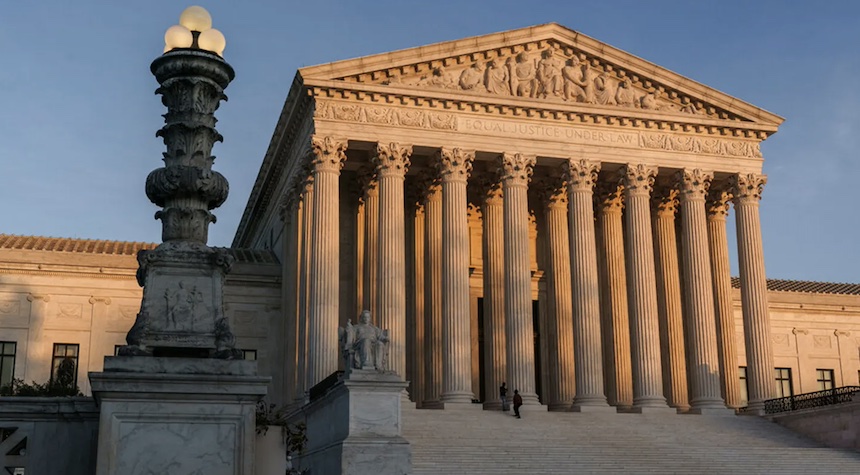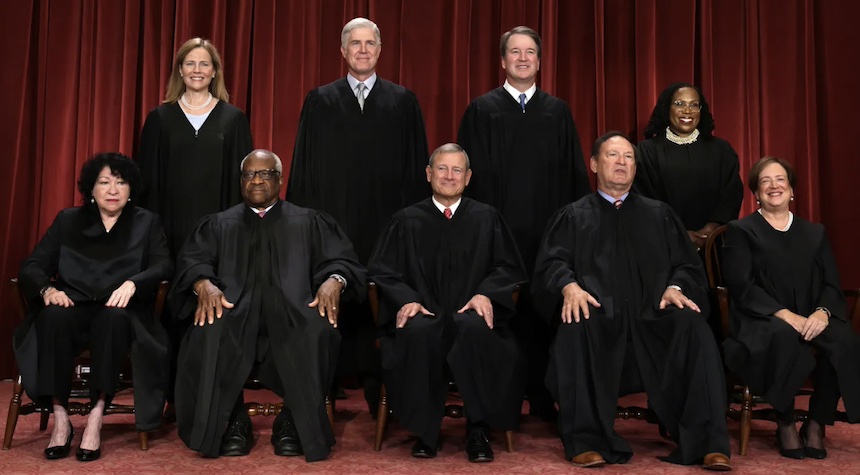The Supreme Court on Monday issued a new “Code of Conduct” following months of heightened scrutiny from Senate Judiciary Democrats pushing for new ethics laws for the high court.
The announcement on Monday stated: “The undersigned justices promulgate this code of conduct to lay out concisely and collect in one place all the ethics rules, principles, and guidelines that guide the behavior of Members of the court.”
“For the majority of these rules and principles are not new. The Court has had a set of ethics rules for many years, which is derived from various sources, such as statutory provisions and the code of conduct that is applicable to all federal judges, ethical advisory opinions by the Judicial Conference Committee on Codes of Conduct and historical practice,” reads the statement.
The absence of an ethics code has, in recent years, led to the misconception that Justices of the Court are not bound by any ethical rules. We are releasing this Code to dispel any misunderstanding. It is a codification largely of the principles we have always considered to govern our conduct.

The Code is composed of five “canons” including two new ones that seem to be a response to recent reports about travel arrangements made for Justices Samuel Alito, Clarence Thomas and others to take private trips and the use of Court staff to promote books — referring to an article that stated that Justice Sonia Sotomayor’s staff encouraged colleges and libraries buy her book.
The code states that “a Justice should not use judicial chambers or resources or staff in a substantial way to engage in activities which do not support materially official functions or activities permitted by these Canons.”
The rules state that “a Justice may accept reasonable compensation or reimbursement of expenses if it does not appear to influence Justice’s duties as a Justice, or make the payments look improper.”
The new code states that “Expense reimbursements should be limited only to actual or reasonable estimated costs for travel, lodging, and food reasonably incurred or incurred by a Justice, his spouse, or if appropriate, a relative of the Justice.”
The Code states, “For a long time, all Justices agreed to comply with the law governing financial disclosure and the undersigned members of the Court have each individually reaffirmed that commitment.”

The Court has met privately over the past few months to discuss how to create a new code of ethics that would address the public’s concerns about ethics, without compromising what the Chief Justice in particular said was the independence of the court on such matters when it comes under congressional oversight.
In recent weeks, Justices Elena Kagan and Brett Kavanaugh as well as Amy Coney Barrett have all publicly expressed their support for a revised ethics code.
In May, Chief Justice Roberts issued a joint statement by all nine court members saying that the court had more work to do in order to “adhere” to the highest ethical standard.
The Senate Judiciary Committee Democrats have been relentless in their pressure against the Supreme Court after hearing that Justices Thomas, Alito, and other justices had taken luxury vacations funded by friends.

Ranking member Senator Lindsey Graham (R-S.C.) accused his Democratic colleagues of launching a “concentrated effort” to undermine the conservative majority Supreme Court.
Graham stated in May that the goal was to undermine the legitimacy of the conservative court.
Republican Senator John Kennedy, R. La., called the Democrat-sponsored legislation – The Supreme Court Ethics, Recusal, and Transparency Act – a ‘court-killing-machine’ that was “dangerous” and ‘unserious.
In light of Monday’s Supreme Court announcement, it’s not clear whether Committee Democrats will still push for reforms.


